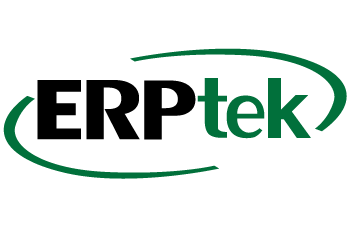SAP ABAP Developer with SAP NetWeaver 7.50 Course Details

| Start Date | Class Timing (EST) | Duration | Mode of Training | Location |
|---|---|---|---|---|
| 07-Mar | 9am to 2pm, every Saturday | 8 Weeks | Online | Online |
- Who can do this course
- What does it covers
- After course completion
- Job Opportunities
- Certification Exam
- Course Content
Who can do this course
This course is suitable for entry-level software programmers users who intend to pursue an SAP Associate Certification in SAP ABAP Developer with SAP NetWeaver. This course is also suitable for new university and college graduates with no experience in SAP as long as they have any programming background or have aptitude to learn programming.
What does it covers
This course covers the ABAP Workbench Fundamentals & Concepts you’ll need to know to become SAP ABAP Developer.Through lectures and numerous exercises you will receive extensive practice working through many ABAP transactions leading to increased confidence in being able to apply what you have learned, in your work environment.
After course completion, you will be able to:
- Explain how to create different types of ABAP program using basic ABAP language elements, the different modularization techniques, and appropriate event blocks
- Describe the functions of the ABAP Dictionary, including the creation and use of database objects and also data types
- Know the differences between objects, data objects and data types, and describe when to use the different data types available
- Build ABAP reports with selection screens, either displaying data in a classic list or a classic ALV grid, whilst using appropriate event blocks for the necessary logic in the ABAP program.
- Read data in an efficient way from the SAP database, and perform database updates using the update technique, with appropriate logical locks.
- Describe the options for adapting SAP standard applications and when to use them, and understand how to find and implement the different types of enhancement.
- Explain how to develop object-oriented ABAP applications and ABAP classes, using all useful object-oriented programming techniques
- Describe the programming approach and architecture of Web Dynpro for ABAP, including the use of the Context and Controllers
- Describe the SAP NetWeaver Application Server Architecture and the ABAP processes which run on it, and explain how ABAP requests are processed
- Define and use standard, sorted and hashed internal tables, and describe the advantages and limitations of each table kind
- Use the ABAP Workbench to create all kinds of Repository Object, and be able to use the ABAP analysis and trace tools, including the ABAP Debugger, Code Inspector, SQL Trace, ABAP Trace and SQL Monitor.
Keywords: sap abap training, sap s4hana abap course, sap abap course toronto, sap abap course mississauga,sap abap course, sap s4hana abap training, sap abap training toronto, sap abap training mississauga,sap abap training online,sap abap certification,sap abap end user,sap abap consulting training,sap abap user training,sap abap onsite training,sap abap instructor led training,sap abap training gta,sap abap jobs,sap abap consultants
Job Opportunities after completing the course
- SAP ABAP Consultant (After passing the certification exam)
- ABAP Developer
- SAP ABAP Team Lead
Certification Exam Details
This course will lead you towards the following certification
C_TAW12_750
SAP Certified Development Associate - ABAP with SAP NetWeaver 7.50
- Associate Level
- 80 questions for the exam
- 3 Hours duration
- Passing Score is 59%
Course Content
- SAP NetWeaver Application Server fundamentals:
- SAP Systems and SAP Applications Portfolio
- SAPGUI and navigation in AS ABAP systems
- System Core
- Communication and integration technologies
- ABAP Workbench Foundations:
- ABAP program processing
- ABAP Workbench tools
- ABAP language basics, Open SQL
- Modularization techniques
- Complex data objects, structures and internal tables
- Data modeling and data retrieval
- Classic ABAP reports
- Program analysis tools
- Program calls and memory management
- ABAP Dictionary:
- Domains, data elements, structures
- Transparent tables, pool tables and cluster tables
- Input checks
- Dictionary object dependencies
- Changes in table structure
- Views
- Search helps
- Classical UI programming:
- Selection screens
- Screens (dynpros)
- ABAP Objects:
- Object-Oriented Programming
- Fundamental Object-Oriented syntax
- Inheritance and casting
- Interfaces and casting
- Events
- Global Classes and Interfaces
- Exception handling
- ABAP Object-Oriented examples – ALV and BAdIs
- Abstract classes, factory methods, singletons
- Dynamic programming:
- Generic data types
- Field symbols and data references
- Runtime Type Identification (RTTI)
- Runtime Type Creation (RTTC)
- Enhancements and modifications:
- Adjustment of SAP Standard Software
- Enhancing Dictionary elements
- Customer Exits
- Business Add Ins (BAdIs)
- Modifications of the SAP standard applications
- Implicit and Explicit Enhancements
- Fundamentals of Web Dynpro for ABAP
- Web Dynpro Components, Windows and Views
- Web Dynpro Controllers
- Web Dynpro Context
- Web Dynpro User Interface
- Controller and Context programming
